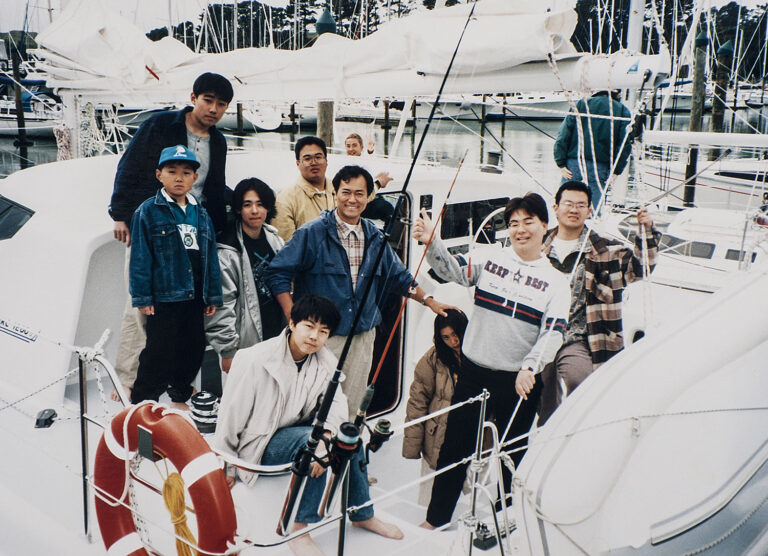According to a Japanese government national survey, one in every 50 people in the working-age population has difficulty living and is isolated from social life. The major causes of this problem aren’t only rooted in their school or social life. The pandemic was a factor, and people in many age groups have had to leave employment to care for their family members, due to the low birth rate and aging society.
K2 International Japan, located in Negishi, has been helping young people with these problems become independent since it was established 35 years ago. Katsuo Kanamori, the company’s leader, used to work at a startup, handling business related to yachts. He took charge of a corporate social contribution program designed to “cheer up children who refuse to go to school, by teaching them how to sail yachts.” He dealt with kids who avoided attending school and it was this experience that led him to start his own business. He was surprised that this activity had the power to make kids and their parents happy, and he enjoyed a particularly strong feeling of accomplishment in his life. It was a life-changing experience. When the program ended, many people wanted him to continue. He already had close relations with these families, so he decided to establish an independent business.
Kanamori organized a sailing program called “Columbus’s Great Voyage” for the first time in 1991. Since then, 21 more voyages have taken place. About a dozen crew members sailed from Yokohama through the Pacific Ocean to Pohnpei, an island in the Federated States of Micronesia, taking a few weeks. Parents were surprised to see kids who’d been stuck at home for years come back tanne, with smiles on their faces. As a result, the way they interacted with their kids changed. At first, Kanamori started this program to let the kids see the outside world, but at the same time, he saw the importance of separating them from their former lives.
“What’s needed for those with school refusal and reclusiveness is a situational change to a place where no one knows them and they can forget about themselves. The kids regained their energy by resetting the relationship they had with school life, the places where they lived, and family members and parents. By putting themselves into a situation where they didn’t know anybody or speak the local language, they built a relationship of trust with supervisors. As a person who witnessed that kind of transition, I really think it’s crucial to create shared communities where they can understand each other and to have those communities cooperate to look after the kids,” Kanamori told us cheerfully and with notable charisma.
The company is currently based on the idea of “supporting young people with the power of networking”. It not only supports recluses and children refuse school, but it also addresses a wide range of problems, including people with developmental disorders, those in poverty, and those in need of parenting support, by working together with existing educational and welfare services. They have branches in New Zealand, Australia, and South Korea, creating more than 40 working opportunities. Additionally, they’ve organized over 100 support programs, including an agriculture learning and training camp, employment support for people with long-term unemployment, and alternative study abroad. The company provides a total management role in their programs, based on more than 35 years of experience and accomplishments.
Note: Next issue, we plan to discuss this in more detail, but K2 also runs Okonomiyaki Columbus (see back cover). Simply by eating there with friends or family, you can support the organization!


